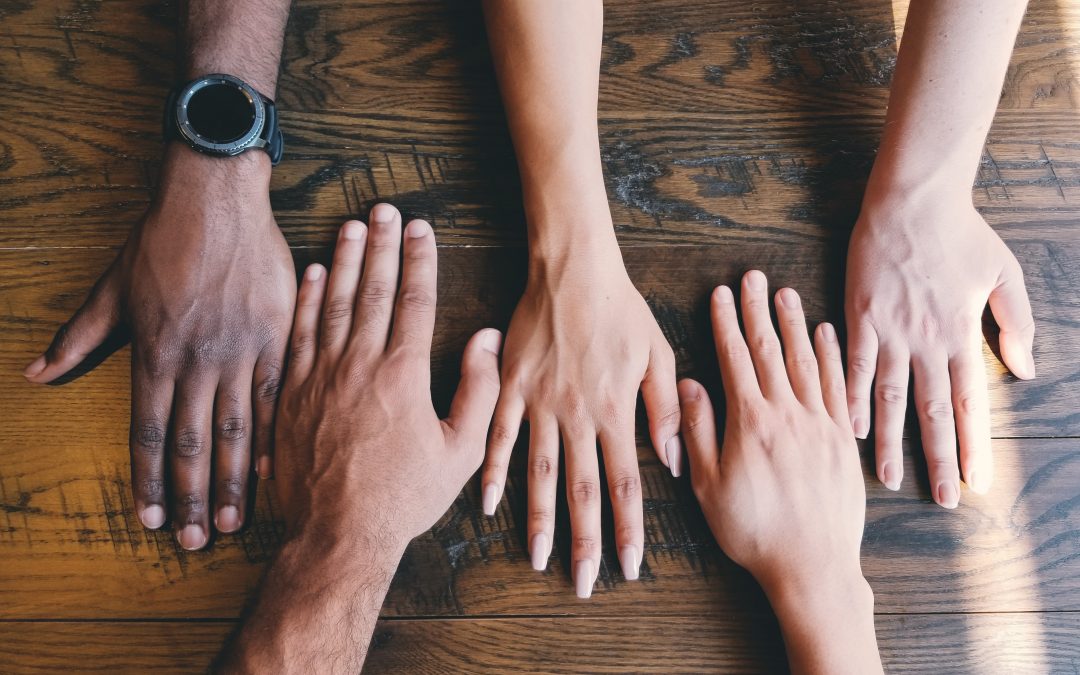How might we ensure equity is inherent in the design process from Day 1? Read on to hear how Team Toolkit is partnering with the Good Trouble Lab as part of MITRE’s Social Justice & Social Innovation initiatives.
– – –
2020 has been the unexpected year of a global health pandemic, nationwide protests demanding justice, and record-setting wildfires along the west coast. Even the Pentagon has confirmed the existence of UFOs! Without a doubt, 2020 has forced all of us to adapt to a new “normal” and like it or not, change is here. And like true innovators, we recognize that with all great disruption comes great opportunity.
In this case, MITRE is embarking upon a new journey to bring our expertise to the cause of social justice. We recently stood up a Social Justice Platform to initiate, facilitate and drive social change*. Our conversations for social justice have centered around equity. That is, how can we ensure that everyone has equitable access, participation, and fair treatment?
Equity acknowledges that race, gender, geographic location, wealth, and other socio-economic factors may create an uneven playing field. Equity, quite simply, seeks to make the playing field level and unencumbered for everyone. Equity may be confused with its close cousin, Inclusion & Diversity. However, there are subtle nuances between these areas. To better understand, consider these powerful questions that Isabelle Yisak asks us:
- Diversity asks, “Who’s in the room?” Equity responds: “Who is trying to get in the room but can’t? Whose presence in the room is under constant threat of erasure?”
- Inclusion asks, “Has everyone’s ideas been heard?” Justice responds, “Whose ideas won’t be taken as seriously because they aren’t in the majority?”
- Diversity asks, “How many more of [pick any minoritized identity] group do we have this year than last?” Equity responds, “What conditions have we created that maintain certain groups as the perpetual majority here?”
- Diversity celebrates increases in numbers that still reflect minoritized status on [a college] campus and incremental growth. Equity celebrates reductions in harm, revisions to abusive systems and increases in supports for people’s life chances as reported by those who have been targeted.
Equity and inclusion are not something we should think about after, but rather something that should be embedded throughout all stages of our work. Diversity is a fact. As such, we must design inclusively, we can no longer suffer the devastating consequences of solutions that are not equitable.
When Tammy Freeman, a fellow Innovation co-conspirator and the new co-lead for the Social Innovation focus area under the Social Justice Platform, invited Team Toolkit to collaborate on this intersection of equity-driven design & innovation, it was a no brainer! Together, Team Toolkit is partnering with the Social Innovation’s Good Trouble Lab to embed an equity lens in the work we do at MITRE and to support our sponsors and community in designing equitable solutions, programs and projects.
And the first place we’re starting? The Toolkit itself. We’re currently creating new innovation tools with an equity lens, as well as adding an equity lens to some of our existing tools. And in the spirit of sharing messy first drafts, here’s us “going public” before it’s complete!
Our journey is just beginning, and we’ll be sharing more on what we are doing, what we learn, and how you can help. Stay tuned, and let us know in the comments below what ideas you have to bring more equity into your work and organization!
– – –
* Curious how we do this? We do this by examining, understanding, and disrupting systemic issues that hinder social justice and by providing objective, apolitical data, products, and capabilities. This helps policymakers, public leaders, and private sector leaders replace outdated arrangements with more equitable solutions that meet the needs of all.

